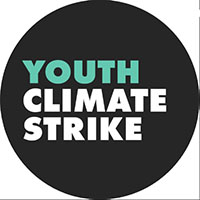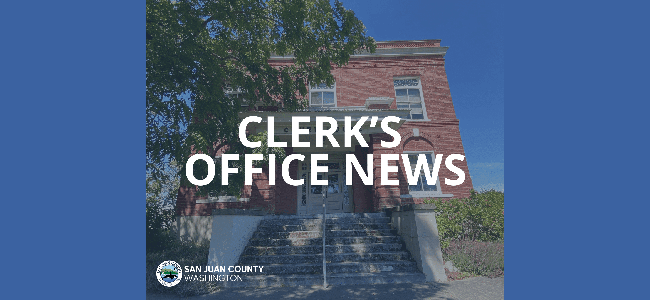Friday, September 20, 12:15 p.m., Village Green
— by Lin McNulty, Editor —
Orcas High School students will join students across the U.S. in striking for the climate on Friday afternoon. The intense national movement is the result of increasing youth awareness that our climate is in real danger and that it will only worsen if we don’t do something now.
To join with the students, meet at the Village Green at 12:15 p.m. on Friday, September 20 to demand action to address the climate crisis. Bring a friend and bring a sign.
Questions? Concerns? Email Arla Sutton at asutton@orcas.k12.wa.us.
Visit the Youth Climate Strike website for additional information. Following is their Mission and Demands:
Our Mission
We, the youth of America, are striking because the science says we have just a few years to transform our energy system, reduce our greenhouse gas emissions, and prevent the worst effects of climate change. We are striking because our world leaders have yet to acknowledge, prioritize, or properly address our climate crisis. We are striking because marginalized communities across our nation — especially communities of color, disabled communities, and low- income communities — are already disproportionately impacted by climate change. We are striking because if the social order is disrupted by our refusal to attend school, then the system is forced to face the climate crisis and enact change. With our futures at stake, we call for radical legislative action to combat climate change and its countless detrimental effects on the American people. We are striking for the Green New Deal, for a fair and just transition to a 100% renewable economy, and for ending the creation of additional fossil fuel infrastructure. Additionally, we believe the climate crisis should be declared a national emergency because we are running out of time.
Our Demands
- An equitable transition for marginalized communities that will be most impacted by climate change
- The implementation of any measures to curb climate change must be considerate, and actively working against, the impacts of climate change on marginalized communities– communities of color, impoverished communities, disabled communities, and LGBTQ+ communities– who are at the frontline of all climate-related disasters
- Encourage dense affordable livable cities prioritizing community stability and countering displacement. Ensure access to safe and adequate housing for all;
- Respect and follow all treaties with First Nation communities and protect the food sovereignty and intellectual property of First Nations, as well as ensuring appropriate, culturally competent training programs for tribal colleges and collaborations between tribal and state colleges to provide education for the green economy.
- Invest in education and training for inmates regarding renewable careers, and invest grassroots transformative justice to move away from the unjust prison system and the school-to-prison-pipeline, and outlaw private prisons and the forced labor of prison inmates
- Support green job training programs in the transition from prison to work.
- Address the effects of the climate crisis on various communities within the United States with an emphasis on front-line, marginalized communities by allowing them to create committees that can apply for governmental aid in climate-related disasters while also helping to prepare said communities to mitigate climate-related damage;
- Ensure a just transition for all front-line communities by ensuring that the transition is led from the community level and by prioritizing solutions that eliminate community-level threats via equitably distributed investments to historically disadvantaged communities;
- Protect and enforce land and sovereign rights of tribal nations; honor and protect treaty rights, and free prior and informed consent for Indigenous nations, in keeping with the United Nations Declaration on the Rights of Indigenous Peoples;
- Remove entrenched racial, regional, ability, and gender-based barriers to income and wealth; create a public bank to finance a transition for the benefit of all Americans
- Invest in affordable and accessible renewable energy, such as solar gardens etc.
- Respect Indigenous women, Indigenous queer and trans women, women of color, and queer and trans people of color and protect them from assault, sexual violence, and trafficking
- Acknowledge the term “climate refugee” and welcome all climate refugees including; war refugees, communal/gang violence refugees, and natural disaster refugees.
- Work together with other wealthy nations to be prepared to welcome climate refugees and provide safety and accommodation for them in international solidarity.
- An equitable transition for fossil-fuel reliant communities to a renewable economy
- Respect the contributions of fossil fuel workers
- Invest in local renewable energy, community based industries, and local living wage jobs for transitioning fossil fuel workers
- Invest in local communities so they may clean up the lands and waters polluted and damaged by fossil fuel extraction/infrastructure/shipping/export
- Switch to clean renewable energy and clean industrial processes
- Reskilling of their employees for new clean, local energy industries
- Provide fully paid quality healthcare for their workers and families who have been made unhealthy by working for extractive and toxic industries.
- Diversify local economies with a particular focus on communities where unsustainable industries hold control over the labor market; ensure workers can partake in the energy transition through workplace democracy, control and ownership;
- 100% renewable energy by 2030
- Upgrading the current electric grid
- Investing in green technology and developments
- No creation of additional fossil fuel infrastructure (pipelines, coal plants, fracking etc.)
- The creation of a committee to oversee the implementation of a Green New Deal
- That has subpoena power
- Committee members can’t take fossil fuel industry donations
- Accepts climate science
A halt in any and all fossil fuel infrastructure projects
- Fossil fuel infrastructure disproportionately impacts indigenous communities and communities of color in a negative way
- Creating new fossil fuel infrastructure would create new reliance on fossil fuels at a time of urgency
- Therefore we ask to end the construction of any additional fossil fuel infrastructure immediately
All decisions made by the government be tied in scientific research, including the 2018 IPCC report
- Reducing GHG emissions by 50% by 2030, and 100% by 2050
- These facts need to be incorporated into all policymaking decisions
For declaring a National Emergency on Climate Change
- This calls for a national emergency because we have 11 years to avoid catastrophic climate change
- Since the US has empirically been a global leader, we should be a leader on climate action
- Since the US largely contributes to global GHG emissions, we should be leading the fight in GHG reduction
Compulsory comprehensive education on the impacts of climate change and the importance of climate justice throughout grades K-8
- K-8 is the ideal age range for compulsory climate change education because:
- Impressionability is high during that developmental stage, therefore it’s easier for children and young adults to learn about climate change in a more in-depth manner, and retain that information
- Climate change becomes a nonpartisan issue, as it truly is because it’s based solely on science and human experience from the beginning
- Promoting community stability through empowering local leadership and decision making through ensuring accessible high-quality, culturally competent and science-based curriculum on climate change as well as by giving local communities authority over the standards, programs, and investments established within them
Preserving our public lands and wildlife
- Diverse ecosystems and national parks will be very impacted by climate change, therefore it’s important that we work to the best of our abilities to preserve their existence
- The earth’s animals are intrinsic to its existence, and with the onset of a possible 6th Mass Extinction we must protect wildlife and their habitats at all costs
Keeping our water supply clean
- Clean water is essential for all living beings, when we pollute our water supply, or the water supply of someone else, it’s a violation of an essential human right
**If you are reading theOrcasonian for free, thank your fellow islanders. If you would like to support theOrcasonian CLICK HERE to set your modestly-priced, voluntary subscription. Otherwise, no worries; we’re happy to share with you.**








I will be there!